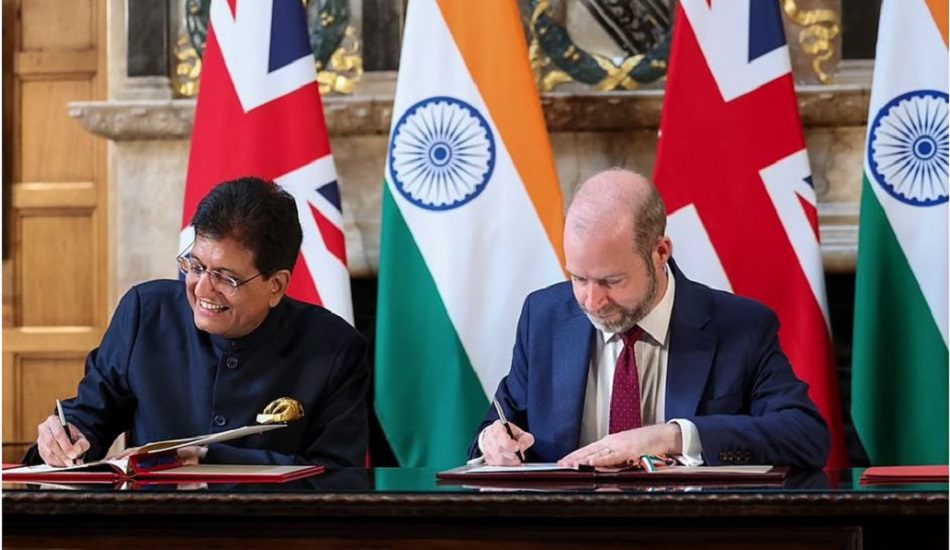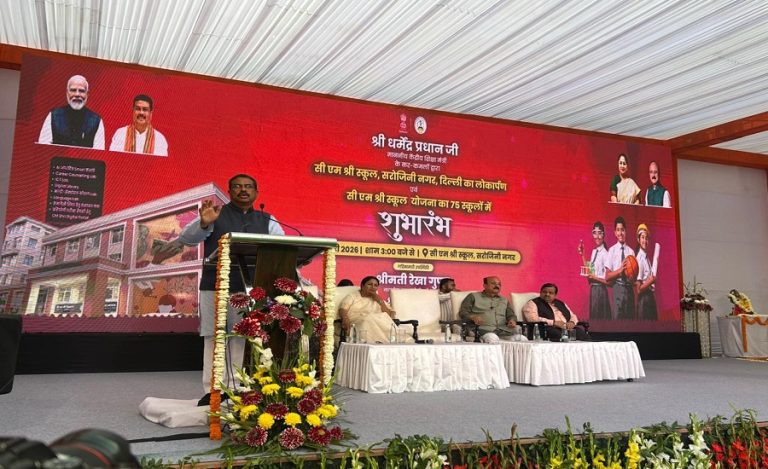New Delhi/London — In a historic move set to reshape bilateral economic ties, India and the United Kingdom on Thursday signed a Comprehensive Economic and Trade Agreement (CETA) aimed at doubling their current trade volume of USD 56 billion by 2030. The agreement, signed at UK Prime Minister Keir Starmer’s official residence, Chequers, has been hailed as the most significant trade deal for both nations in the post-Brexit era.
The pact was signed by India’s Commerce and Industry Minister Piyush Goyal and his UK counterpart Jonathan Reynolds, in the presence of Prime Ministers Narendra Modi and Keir Starmer, marking a pivotal milestone in the ongoing strategic partnership between the world’s fifth and sixth largest economies.
read also: Trade Boost Ahead: Cabinet Approves India-UK Free Trade Agreement Ahead of PM Modi’s UK Visit
Key Provisions of the Deal
- 99% of Indian exports will enter the UK duty-free starting next year.
- Tariffs on British goods such as Scotch whisky will be cut from 150% to 75% immediately, and reduced further to 40% by 2035.
- Auto imports from the UK will see duties drop from up to 110% to 10% over five years, under a quota system.
- India secured duty-free access for over 95% of agricultural and processed food items, including spices, pulses, seafood, and ready-to-eat goods.
- Indian generic medicines, medical devices, and engineering goods will now benefit from zero-duty access in the UK.
Sectors Set to Benefit
Indian industries such as:
- Textiles and ready-made garments
- Footwear
- Gems and jewellery
- Leather goods
- Engineering products
- Marine and agri-food exports
will gain enhanced market access, giving a competitive edge in the UK market over countries like Bangladesh, Pakistan, and Cambodia that previously had duty-free access.
For the UK, the deal opens Indian markets for premium vehicles, alcoholic beverages, medical devices, and aerospace components.
Labour Mobility & Social Security Exemptions
One of the most significant aspects of the pact is mobility and talent movement:
- Indian professionals working in the UK through companies like TCS and Infosys will be exempted from social security contributions for up to three years.
- The Double Contribution Convention improves cost competitiveness for Indian talent posted abroad.
- UK has agreed to provide market access for Indian financial services, insurance, and digitally delivered financial products.
Economic Impact
- Expected to unlock $23 billion in export opportunities for India.
- Indian exporters could gain at least 5% additional UK market share within 1–2 years.
- Engineering exports may double to over $7.5 billion by 2029-30.
- Textiles, home furnishings, carpets, and handicrafts poised for exponential growth.
Leaders Speak
Prime Minister Narendra Modi hailed the deal as “a blueprint for shared prosperity,” stating:
“Indian goods like textiles, footwear, and engineering products will find greater access in the UK, while Indian consumers will benefit from British innovations at affordable prices.”
UK PM Keir Starmer called it:
“The biggest and most economically significant deal Britain has made since Brexit… and a powerful message that Britain is open for business.”
Piyush Goyal added:
“This deal will unlock new frontiers in trade, promote inclusive and gender-equitable growth, and solidify India’s position as a global manufacturing and service hub.”




























